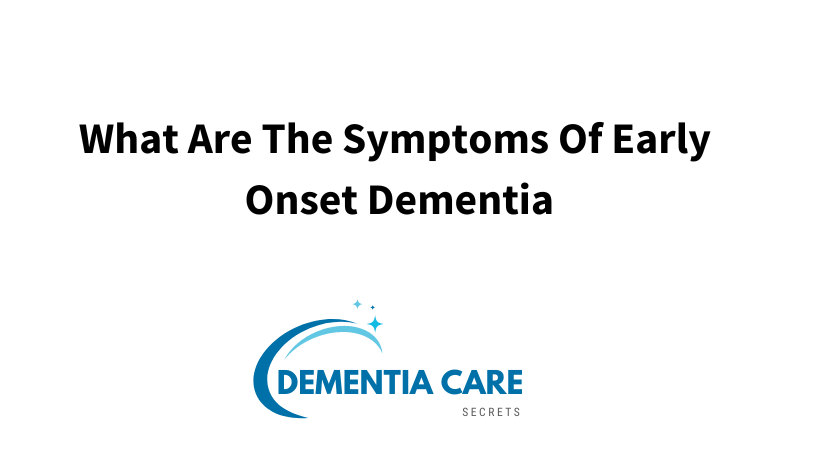What Are The Symptoms Of Early Onset Dementia
Early-onset dementia can affect individuals under 65, causing memory loss, confusion, difficulty planning, and mood changes. Recognizing early symptoms is crucial for timely diagnosis and care. Learn the signs to watch for and steps to take for support.

What are the symptoms of early onset dementia DCS
In this podcast episode, Diane Carbo discusses the symptoms and challenges of young onset Alzheimer's disease through the story of John, a 45-year-old father of six. As a younger person affected by this condition, John's case highlights the rarity of early onset Alzheimer’s, affecting individuals in their forties and fifties, and the emotional toll it takes on families. The episode emphasizes the importance of understanding the unique difficulties of early onset Alzheimer’s, which may lead to job loss, financial strain, and family upheaval.
Diane explains the symptoms of early onset Alzheimer’s, including memory loss, confusion, difficulty finding words, poor judgment, mood swings, and personality changes. She stresses the significance of early diagnosis and the role of genetic factors in this form of Alzheimer’s. John’s wife’s experience highlights the challenges of caregiving and the need to seek support from family, friends, and support groups.
The episode also addresses legal and financial preparations for families dealing with early onset Alzheimer’s, including powers of attorney and estate planning. Diane discusses the impact on children and offers tips for involving them in the care process while addressing their emotional needs. The podcast concludes with the recognition that resources and support for early onset Alzheimer’s are limited, underscoring the importance of awareness and community assistance in managing this challenging condition.

Understanding Early Onset Dementia
Early onset dementia, also known as young onset dementia, is a condition that affects people under the age of 65. Unlike dementia in older adults, young onset dementia can significantly disrupt the work and social lives of younger people. This condition arises from diseases that damage brain cells, leading to a decline in cognitive function and daily living skills. For those experiencing young onset dementia, the impact on their careers, relationships, and overall lifestyle can be profound. Understanding the unique challenges faced by younger individuals with onset dementia is crucial for providing appropriate support and care.
Causes of Early Onset Dementia
The causes of early onset dementia are varied and can be similar to those of late onset dementia. However, certain conditions are more prevalent among younger people. Frontotemporal dementia (FTD), a rare form of dementia, primarily affects the frontal and temporal lobes of the brain and is more commonly seen in younger individuals. Other causes include Alzheimer’s disease, vascular dementia, and dementia with Lewy bodies. In some cases, early onset dementia can be attributed to genetic mutations, such as those seen in familial Alzheimer’s disease. Understanding these causes is essential for accurate diagnosis and management of the condition.
Symptoms of Early Onset Dementia
The symptoms of early onset dementia can differ from those observed in older adults. Individuals may experience changes in memory, mood, personality, behavior, and cognitive function. These symptoms can be particularly noticeable in a work environment, where colleagues might observe a decline in job performance. It’s important to note that other conditions, such as depression, anxiety, sleep disorders, head injuries, and infections, can produce dementia-like symptoms. Recognizing the specific signs of onset dementia in younger individuals is key to seeking timely medical advice and support.
Diagnosing Early Onset Dementia
Diagnosing early onset dementia involves a comprehensive evaluation, as there is no single test that can confirm the condition. A doctor will begin by discussing the person’s symptoms and medical history in detail. This is followed by a physical examination and various tests, including blood tests, imaging tests like MRI or CT scans, and cognitive and neuropsychological assessments. An early diagnosis is crucial as it allows individuals and their families to plan for the future and begin appropriate medical treatments. Early diagnosis also opens the door to support services and resources that can help manage the progression of the disease.





